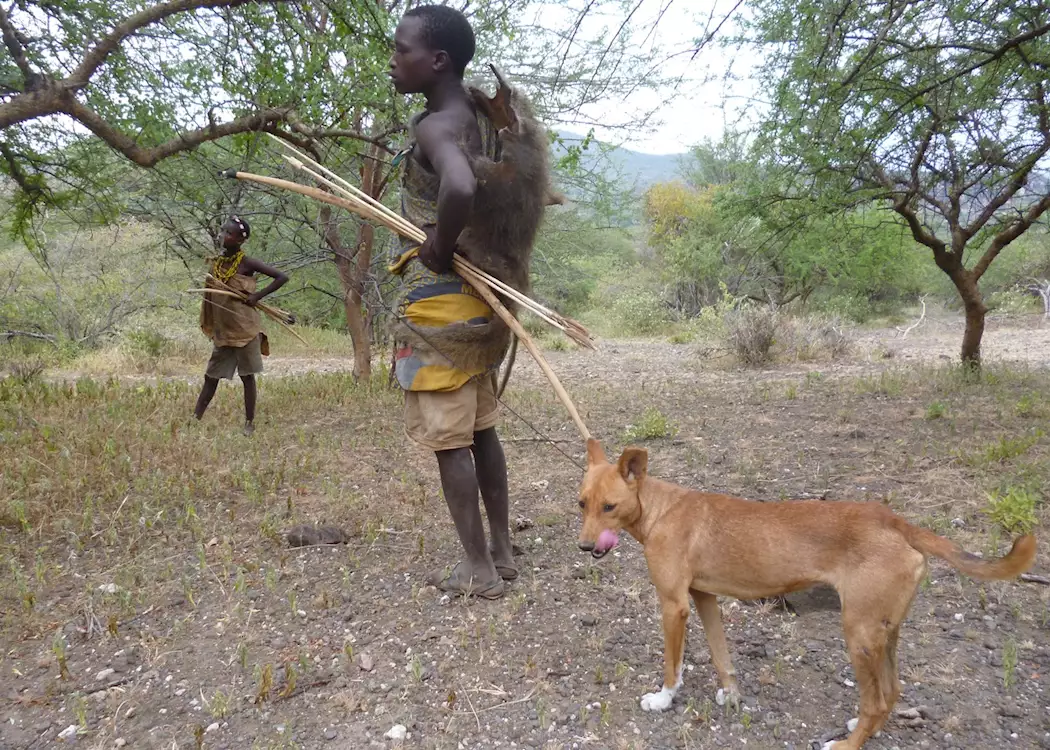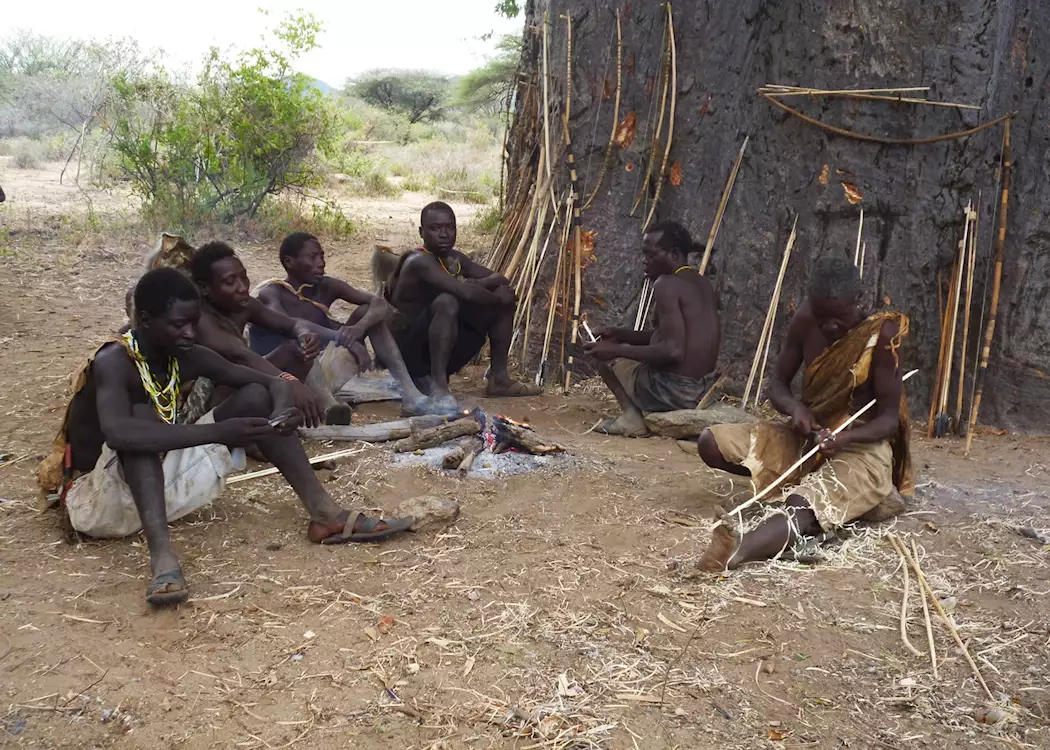Hadzabe, Bushmen, and Mang’ati Tribes in Tanzania
1. The Hadzabe Tribe:
Overview: The Hadzabe, also known as the Hadza, are one of the last remaining hunter-gatherer tribes in Africa, residing near Lake Eyasi in northern Tanzania. They are believed to be descendants of Tanzania’s aboriginal people and have lived in the same region for thousands of years. The Hadzabe are known for their unique way of life, which is closely tied to the land and its resources.
Culture and Lifestyle: The Hadzabe live a nomadic lifestyle, relying on hunting and gathering for their sustenance. They hunt small game with bows and arrows, gather wild fruits, honey, tubers, and berries, and have a deep knowledge of their environment and natural resources. The Hadzabe speak a unique click language, which is thought to be one of the world’s oldest languages.
Fun Facts:
- The Hadzabe do not practice agriculture or animal husbandry.
- Their traditional bow is made from the wood of the Commiphora tree, and arrows are tipped with poison derived from desert rose sap to enhance their hunting efficiency.
- They have no formal social hierarchy, and decisions are made collectively by the community.
Best Time to Visit: Visitors can experience Hadzabe culture year-round, but the dry season (June to October) is ideal for those who want to participate in hunting excursions or bush walks.
Tourist Attractions:
- Cultural Encounters: Join the Hadzabe in their daily activities, like hunting, gathering, and making traditional crafts.
- Bush Walks: Learn about medicinal plants, tracking techniques, and the tribe’s unique survival skills.
- Lake Eyasi: Enjoy scenic views of Lake Eyasi and its surrounding landscapes.
2. The Bushmen:
Overview: The term “Bushmen” commonly refers to the San people, a hunter-gatherer group residing in various parts of Southern Africa, but in Tanzania, it sometimes includes references to the Hadzabe due to their similar lifestyles. The Bushmen of Tanzania are predominantly the Hadzabe, living around Lake Eyasi.
Culture and Lifestyle: Similar to the Hadzabe, the Bushmen practice a nomadic lifestyle, primarily relying on hunting and gathering. Their existence is characterized by a profound knowledge of the natural world and a deep respect for their environment.
Tourist Attractions: Engaging with the Bushmen can provide insight into one of humanity’s oldest ways of life, with opportunities to learn tracking, hunting, and gathering techniques.
3. The Mang’ati (Datooga) Tribe:
Overview: The Mang’ati, also known as the Datooga, are pastoralists and agro-pastoralists living in the same regions as the Hadzabe, primarily around Lake Eyasi and in the Manyara region of Tanzania. They migrated from the Ethiopian highlands centuries ago and are known for their cattle-raising traditions and rich cultural heritage.
Culture and Lifestyle: The Datooga are primarily cattle herders, but they also grow millet, maize, and beans. They are skilled blacksmiths, known for making intricate jewelry and iron tools. The Datooga women are recognized for their unique facial scarification, which is a significant aspect of their beauty standards and cultural identity.
Fun Facts:
- The Mang’ati have a long history of coexistence and conflict with other tribes, such as the Maasai and Hadzabe.
- The word “Mang’ati” means “enemy” in the Maasai language, reflecting historical tensions between the groups.
Best Time to Visit: The best time to visit is during the dry season (June to October) when cultural activities and livestock management are most visible.
Tourist Attractions:
- Cultural Tours: Visit Mang’ati villages to learn about their traditional customs, cattle herding practices, and crafts.
- Blacksmith Workshops: Witness the Datooga’s blacksmithing skills and even try making a traditional iron tool or ornament.
- Community Interactions: Engage in storytelling sessions and traditional dances, and learn about the tribe’s unique practices and beliefs.
Impact of Cultural and Eco-Tourism on These Tribes:
Cultural and eco-tourism provide valuable opportunities for the Hadzabe, Bushmen, and Mang’ati tribes to earn income by sharing their traditions and way of life with visitors. Responsible tourism helps preserve their culture, support local economies, and encourage sustainable practices that protect their ancestral lands and environment.
book Safari Tour
Get a question?
Best Tanzania Safari Packages To Witness The Abundant Wildlife That Call It Home.
For More Exciting & Better Value Safari.
Why book with us
- Customer care available 24/7
- Hand-picked Populer Tours & Activities
- Tailor Made Your Own Itineraries
- The airport Pick-up and Transfer
- Best Accommodations
PHOTO GALLERY


